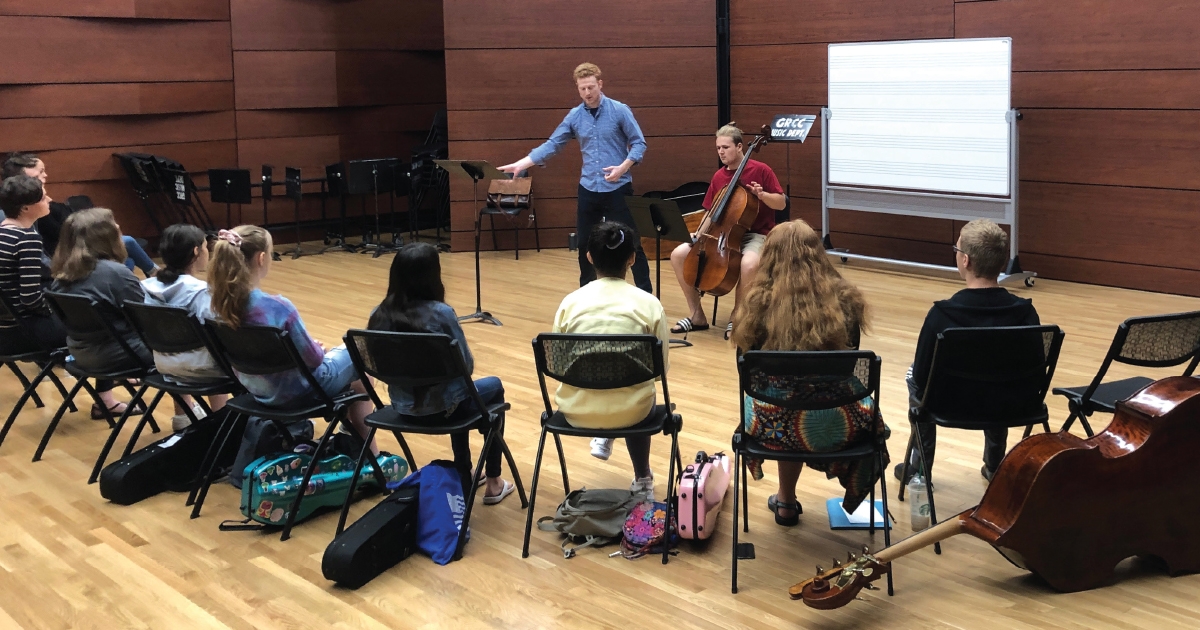As we face unprecedented challenges, we learn to adapt in times of need. But for the music community, the art of live instruction and performances has disappeared for professionals and students alike.
“So much of what the music community is built on hinges upon large public gatherings — whether it’s in a classroom or a performance hall,” said Gene Hahn, violinist and founding member of ESME, the Eclectic String Music Ensemble. “In recent months, students have lost so many valuable opportunities to perform in end-of-the-school-year orchestra concerts, complete final school projects and have been struggling to further their music education effectively. As a result, the morale and motivation for a lot of students to further their studies as well as practice toward a foreseeable goal in the future is very low at the moment.”
Hahn saw a need to adapt and provide students with an effective yet safe learning opportunity to enhance their music education. With a rare access to world-class instruction from across the nation, the ESME Virtual String Camp establishes its camp faculty with principal string players and concertmasters from a variety of orchestras, including the New York Philharmonic and Detroit Symphony Orchestra.
Though in-studio rehearsals are essential, this virtual camp can in fact bring some unique benefits to its students.
“The virtual aspect isn’t just a means for the program to exist. One of the most timely and valuable offerings of the camp is the creative and relevant methods in which students will be applying virtual and online tools toward their training as a musician,” Hahn said.
“Some of the strategic processes we’ll teach are how to layer recordings of themselves with other fellow players in a way that actually forces them to dig deeper into the interactive chamber process than they normally would; assess the interactivity of separate parts in a chamber piece and know when and why they do or don’t work; and employ critical listening skills that will help them to understand the nuances of rhythm, intonation, accompanying versus leading, and other separate roles within a chamber group — all these elements add a whole new narrative to the camp that will really inspire and motivate students during a summer when they need that extra motivation.”
While virtual accessibility will be extensive with faculty-assisted practice sessions and on-call availability during this two-week camp, Hahn also wants to create a supportive environment for ESME students to not only feel a bond to their instruments, but also to each other.
“The connection you make with others while creating music is such a powerful thing that you can’t really find anywhere else,” Hahn said. “One of the most rewarding things students took away from our camp last summer was the friendship with fellow players in their group. The experience was more powerful because it was a shared experience. But even when we are removed from each other physically, that bond is something musicians can always feel, and the ESME Virtual String Camp gives us the ability to do that.”
For more information:
eclecticstringmusicensemble.com
Despite an uncertain future remaining for the music community, Hahn hopes to instill a feeling of hope and inspiration in his students.
“With this kind of adversity, there always comes the need for creativity and innovation to rise above the obstacles.
“For students to discover they can reframe their restrictions into means of educating themselves and learn new ways to develop their musical growth is only one way to call upon their innovative spirit and perseverance — that is something that will serve them not just through a pandemic, but also in their futures.” ν





